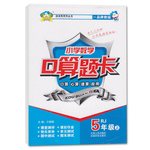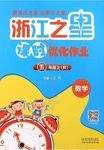题目内容
| |||||||||||||||||||||||||||||||||||||||||||||||||||||||||||||||||||||||||||||||||||||||||||||

 小学数学口算题卡脱口而出系列答案
小学数学口算题卡脱口而出系列答案 优秀生应用题卡口算天天练系列答案
优秀生应用题卡口算天天练系列答案 浙江之星课时优化作业系列答案
浙江之星课时优化作业系列答案完形填空
In the United States, headmasters and teachers discipline (惩戒) students in several ___1__. The teacher often writes or calls the student’s ___2___.
Sometimes students have to stay at school for an extra hour. If a student behaves very ___3___,the headmaster can suspend (暂停学生上课) the student. The student cannot ___4___ for one, two, or three days. Mr. Lazares didn’t like to suspend students. When he suspended some students, they were ___5___. “A three-day holiday!” they thought. One day, a boy named Robert was in Mr. Lazares’s office. The boy was not behaving well in class. Mr. Lazares telephoned the boy’s parents. “If you come to school with your son, I won’t ___6___ him,” he said. The boy’s father came to school and went with his son to every class.Other students___7___ the boy and his father. The boy was embarrassed. After that, he behaved ___8___. He didn’t want his father to come to school again. Other students behaved better, ___9___. They thought, “I don’t want my parents to come to school!”
That year about 60 parents came to school with children who didn’t behave well. The next year only ___10___ parents had to come to school. The students were behaving better.
【小题1】A. A. streets B. roads C. ideas D. ways
| 【小题2】 |
|
| 【小题3】 |
|
| 【小题4】 |
|
| 【小题5】 |
|
| 【小题6】 |
|
| 【小题7】 |
|
| 【小题8】 |
|
| 【小题9】 |
|
| 【小题10】 |
|
完形填空
In the United States, headmasters and teachers discipline (惩戒) students in several ___1__. The teacher often writes or calls the student’s ___2___.
Sometimes students have to stay at school for an extra hour. If a student behaves very ___3___,the headmaster can suspend (暂停学生上课) the student. The student cannot ___4___ for one, two, or three days. Mr. Lazares didn’t like to suspend students. When he suspended some students, they were ___5___. “A three-day holiday!” they thought. One day, a boy named Robert was in Mr. Lazares’s office. The boy was not behaving well in class. Mr. Lazares telephoned the boy’s parents. “If you come to school with your son, I won’t ___6___ him,” he said. The boy’s father came to school and went with his son to every class.Other students___7___ the boy and his father. The boy was embarrassed. After that, he behaved ___8___. He didn’t want his father to come to school again. Other students behaved better, ___9___. They thought, “I don’t want my parents to come to school!”
That year about 60 parents came to school with children who didn’t behave well. The next year only ___10___ parents had to come to school. The students were behaving better.
1.A. A. streets B. roads C. ideas D. ways
|
2. |
|
|
3. |
|
|
4. |
|
|
5. |
|
|
6. |
|
|
7. |
|
|
8. |
|
|
9. |
|
|
10. |
|
| 完形填空。 | ||||
| The famous Italian traveler, Marco Polo, travelled a long way to China in 1 century. He saw many interesting things in China. One of 2 things he found was that the Chinese people used paper money. In 3 countries, people didn't use paper money 4 the seventeenth century. But people in China began to use paper money in the eleventh century. A Chinese man called Cai Lun invented paper almost 2,000 years ago. He made it from wood. He took the wood from trees and made it 5 paper.He then put them together, and made them into a 6 . Now we know 7 comes from trees, and we must save paper. We use a lot of paper every day. If we always waste paper, there will be no paper, because there are not so many trees 8 us to make paper from.Everyone must help to 9 paper. If we all think carefully, we can help to grow 10 trees. And we should do it now, before it is too late. | ||||
|
| 完形填空。 | ||||
| The world 1 many interesting sounds. Some are unpleasant to our ears while 2 are very pleasant to hear. In a single day you probably hear 3 sounds. All sounds are different. Some 4 loud, some sounds are high, others are low, some sounds are useful. 5 sound we can not talk or listen to each other. The ringing of the alarm clock wakes people up; the hooting of a car warns people of danger. Some sounds are harmful. When planes fly low 6 the land. The very loud sounds can damage the house. Very loud sound can even make people deaf. We know sound travels about one kilometer in three 7 . In a thunder storm you see the lighting first and then hear the thunder. This is because light travels_8_ than sound. Next time you see lightning, count the number of seconds before you hear the thunder. Divide this number 9 3. This will tell you 10 kilometers away the thunder storm is.
|